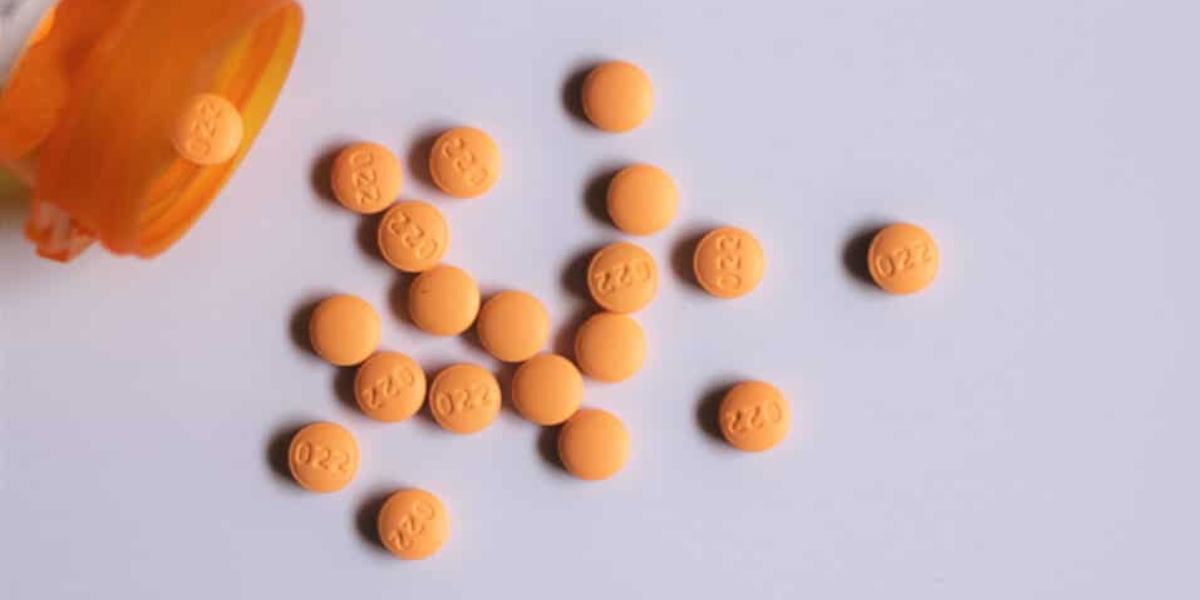Is Flexeril (Cyclobenzaprine) Addictive?


Cyclobenzaprine, known by the brand name Flexeril, is a prescription drug commonly used as a muscle relaxant. It helps relieve muscle spasms and pain associated with severe musculoskeletal conditions. However, there is growing concern about its potential for abuse and addiction.
What Is Cyclobenzaprine (Flexeril)?
Cyclobenzaprine is a skeletal muscle relaxant that is structurally similar to tricyclic antidepressants. It is commonly prescribed to relieve muscle spasms and pain, typically resulting from injuries or other musculoskeletal conditions. Flexeril works by blocking nerve impulses (or pain sensations) sent to the brain, thereby relaxing the muscles.
Cyclobenzaprine is available in both immediate and extended-release formulations. The extended-release version is designed to provide longer-lasting effects, reducing the need for multiple daily doses. This medication is often prescribed for short-term use, usually for a few weeks, as long-term use is not recommended.
Flexeril Effects
Cyclobenzaprine acts on the central nervous system (CNS) to produce muscle relaxant effects. It can cause several effects that users may find beneficial or undesirable.

Flexeril Side Effects
Like any medication, cyclobenzaprine can cause side effects. Common side effects include headaches, among various others:
- Drowsiness
- Dizziness
- Dry mouth
- Fatigue
- Headache
- Blurred vision
- Constipation
- High blood pressure
Mixing cyclobenzaprine with alcohol or benzodiazepines can increase the risk of serious side effects. These effects include breathing problems, extreme drowsiness, cardiac arrest, and even death. It is crucial to avoid such combinations and consult healthcare professionals about potential drug interactions.
Cyclobenzaprine, commonly known as Flexeril, is a muscle relaxant with the potential for abuse and dependence. While it is not classified as a controlled substance, misuse of this prescription drug can lead to addiction.
Recognizing the signs of addiction and seeking professional treatment can help people overcome dependence on cyclobenzaprine and achieve lasting recovery. Always follow the instructions for Flexeril. Seek advice from healthcare professionals. This will help reduce the chance of becoming addicted.
More severe side effects may occur, such as chest pain, slurred speech, or difficulty breathing. These side effects can increase the chances of accidents. This holds particularly true when mixed with additional substances like alcohol. Alcohol also slows down the central nervous system.
Long-term Effects of Cyclobenzaprine Abuse
Chronic use or abuse of cyclobenzaprine can lead to several long-term health issues, including:
• Cardiovascular Problems: Long-term abuse can increase the risk of heart-related issues, such as irregular heartbeats, increased blood pressure, and chest pain.
• Mental Health Issues: Prolonged misuse can contribute to mental health problems, including anxiety, depression, and cognitive impairments.
• Physical Dependence: Continuous use can lead to physical dependence, making it challenging to stop using the drug without experiencing withdrawal symptoms.
Is Cyclobenzaprine Safe?
Cyclobenzaprine is generally considered safe when used as prescribed by healthcare professionals. It’s important to take the right amount of medication for the right amount of time to avoid side effects and misuse. Using cyclobenzaprine beyond the recommended period or in higher doses than prescribed can lead to serious health risks.
Cyclobenzaprine is not classified as a controlled substance by the Drug Enforcement Administration (DEA), but it is still crucial to use it responsibly. Misuse of this medication can lead to serious consequences, including dependence and addiction.
Cyclobenzaprine Abuse and Dependence Potential
Cyclobenzaprine can be abused and cause dependence. It is not classified as a Schedule IV controlled substance. Some people may misuse Flexeril to achieve a sedative or calming effect, which can lead to physical dependence over time.
Cyclobenzaprine abuse happens when people take more than prescribed or use it in ways not recommended by a doctor. This misuse can increase the risk of severe side effects and potentially dangerous interactions with other central nervous system depressants.
Is Cyclobenzaprine (Flexeril) Addictive?
Cyclobenzaprine does not have a high level of addiction potential when compared to other prescription drugs like opioids or benzodiazepines. However, we cannot entirely dismiss its potential for abuse and dependence. Prolonged use or misuse of Flexeril can lead to physical and psychological dependence.
If someone builds up a tolerance to cyclobenzaprine, they might need more of it to feel the same effects, which can lead to addiction. Over time, the body adjusts to the drug, causing withdrawal symptoms if the medication is suddenly stopped.

Signs of Cyclobenzaprine Addiction
It is important to identify the symptoms of cyclobenzaprine addiction to get help quickly. Some common signs of addiction include:
- Increasing the dosage without medical advice
- Using cyclobenzaprine for longer than prescribed
- Experiencing withdrawal symptoms when not using the drug
- Neglecting responsibilities at work, school, or home
- Continuing to use the drug despite negative consequences
- Developing a tolerance to the drug
- Using cyclobenzaprine in combination with other substances to enhance its effects
If you or someone you know has withdrawal symptoms and shows these signs, it’s important to seek professional help. This will address the addiction and prevent further harm.
Flexeril Addiction Treatment at White Oak Recovery Center
Seeking treatment for cyclobenzaprine addiction is a critical step toward recovery. It’s important to collaborate with healthcare professionals. At White Oak Recovery Center, our experienced healthcare professionals help create a treatment plan that addresses all aspects of your addiction. This plan will also support your long-term recovery with solid coping mechanisms and strategies to prevent relapse.
Treatment for Flexeril addiction typically involves a combination of medical and therapeutic approaches. White Oak Recovery Center provides medication-assisted treatment and medical detox to safely get you through withdrawal surrounded by medical care and support.
Our treatment specialists are eager to help you get on a path to lasting recovery and free from substance abuse. Contact us today.

Am I covered for addiction treatment?
Your insurance may cover treatment. Call now for an entirely free and confidential assessment. Recovery starts with a phone call.

- Khan, Imran, and Kahwaji, Chadi I., “Cyclobenzaprine.” StatPearls: National Library of Medicine, Aug. 2023.
- “Cyclobenzaprine.” National Institute on Diabetes and Digestive and Kidney Diseases, Jan. 2017.
- “Cyclobenzaprine.” Drug Enforcement Administration, Mar. 2020.
- Cohen, Johan Y., and Guilbault, Amelie, “Induction of Psychosis by Cyclobenzaprine.” Psychopharmacology Bulletin, Jun. 2018.
- “Cyclobenzaprine.” MedlinePlus: National Library of Medicine, Feb. 2017.
Medical Disclaimer:







